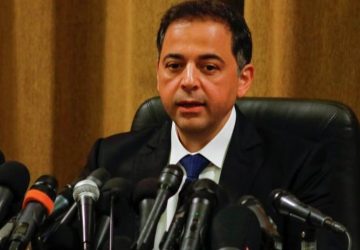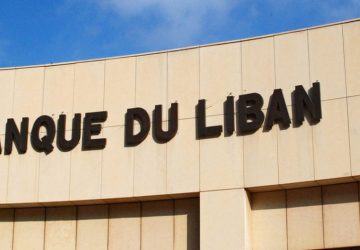Listen to the article
All eyes are on the meeting of the Central Council of the Banque du Liban, scheduled for today, led by the vice-governor Wassim Mansouri, alongside council members. The agenda for this meeting, initially set for Wednesday and rescheduled due to some members’ travel, includes the amendment of Circular 151 after extensive weeks of discussions and negotiations between the Central Bank and the Association of Banks.
According to credible sources close to the vice-governor, the significance of securing depositors’ rights is emphasized. This is anticipated to be realized through the modification of Circular 151 scheduled for today, Friday. Wassim Mansouri chose to delay until the conclusion of parliamentary deliberations and the approval of the budget before making final adjustments to the circular, issued in April 2020 by former governor Riad Salameh. Presently, this circular allows bank withdrawals of “lollars” or dollars at the exchange rate of LBP 15,000 for one banking dollar. However, at the end of 2023, the effect of this circular came to an end and the Central Council of the Banque du Liban chose not extend it.
Recent discussions between Mansouri and the Association of Banks revealed differing opinions within the banking institutions regarding the implementation of proposed amendments to Circular 151. This circular explicitly mandates banks to allow depositors to withdraw $150 in cash from their dollar accounts in lollars, subject to specific conditions outlined in the circular.
According to available information, the amendment to Circular 151 will benefit depositors who are not covered by Circular 158, which allows withdrawals of $400 or $300 per month, depending on the registration date for Circular 158 benefits. Even if the depositor holds another account in a different bank from where Circular 158 benefits apply, they will not be able to take advantage of the amendment to Circular 151. Additionally, “check traders” are not eligible for the amendment to Circular 151, as banks, utilizing an account movement control process, can identify these “check traders” who will not be allowed to withdraw the monthly $150 amount.
As for the process of dealing with non-fresh dollar accounts opened after October 17, 2019, this issue will be addressed in the upcoming meeting of the Central Council of the Banque du Liban.
In recent weeks, banks have been divided among those expressing willingness to comply with Mansouri’s request and implement the changes proposed in Circular 151, and others acknowledging challenges in ensuring the necessary liquidity to cover anticipated withdrawals. Nonetheless, Mansouri emphasized the binding nature of circulars issued by the Banque du Liban, and consequently, banks must adhere to them.
Based on information at hand, the annual cost of the new circular envisioned by Mansouri ranges between $200 million and $230 million, to be shared between the Banque du Liban and the banks.
According to Mansouri’s inner circles, it has been confirmed that he will not be issuing any circulars modifying the official dollar exchange rate, as this does not fall within his remit. Thus, the rate of LBP 15,000 per dollar will persist for depositors seeking to withdraw Lebanese pounds from their dollar accounts, in addition to the $150 accessible through the modification of Circular 151. This exchange rate of LBP 15,000 per dollar will endure until the 2024 budget is published in the official gazette next week.
However, the risk lies in the government or Parliament’s responsibility to enact suitable measures to ascertain a new exchange rate for the banking dollar, knowing that the adoption of the rate of LBP 89,500 (the exchange rate of the dollar on the parallel market) for one dollar could have severe consequences on the monetary mass in Lebanese pounds and, consequently, on the dollar exchange rate in the parallel market.
Nevertheless, it remains possible to opt for an exchange rate based on the Banque du Liban’s platform, namely LBP 89,500, in the absence of capital control legislation. This potential move could further impact the Lebanese pound’s exchange rate. Importantly, those close to Mansouri emphasize that the governor lacks the authority to issue a circular acting as capital control legislation, as this prerogative falls under the jurisdiction to the Parliament or the government.





